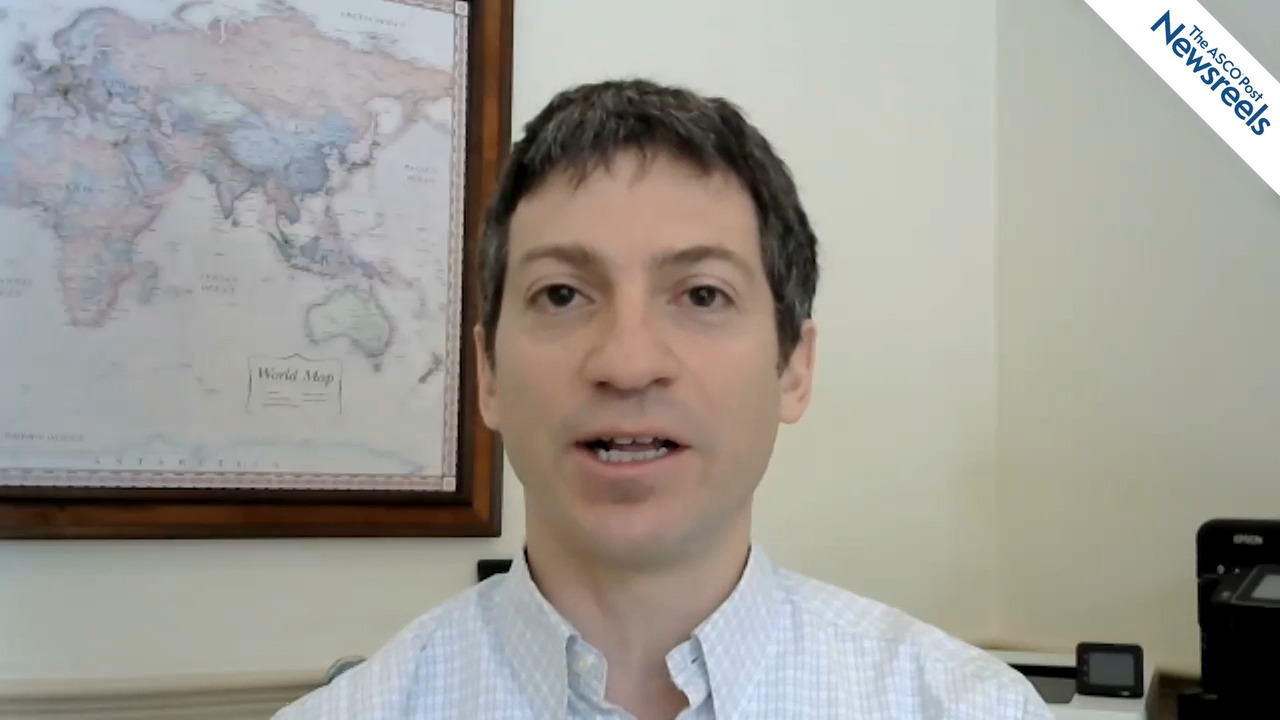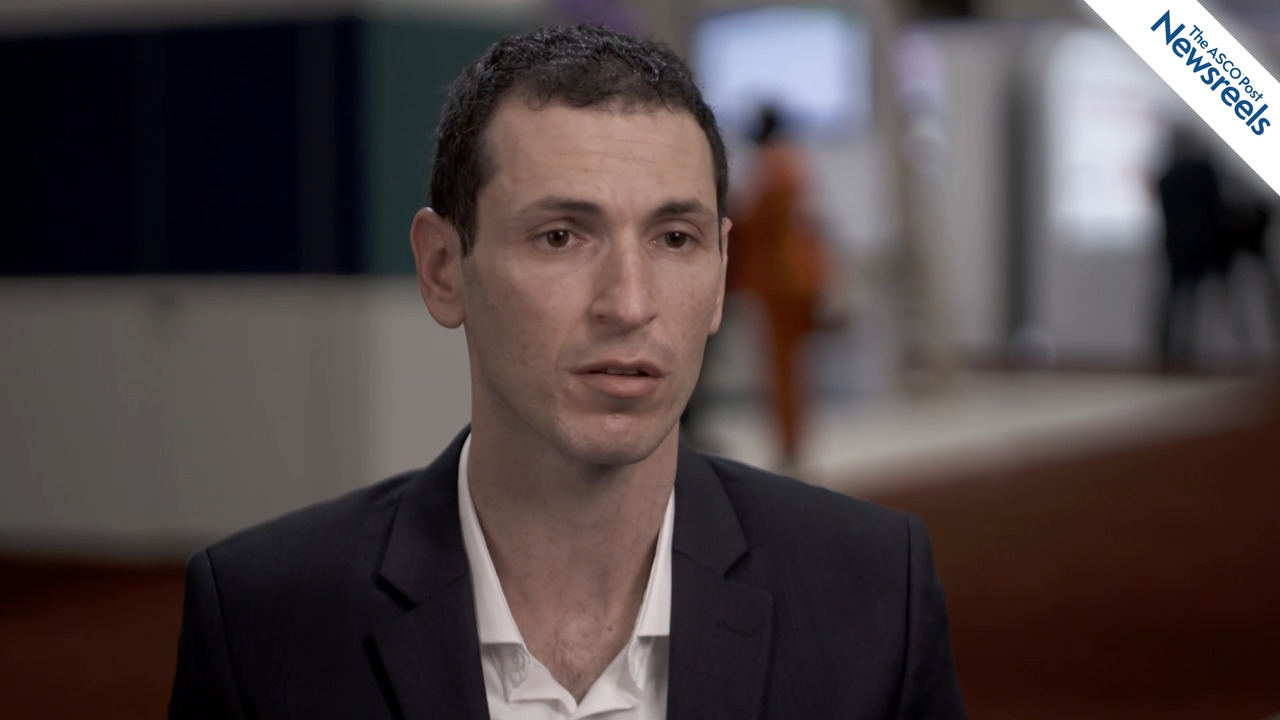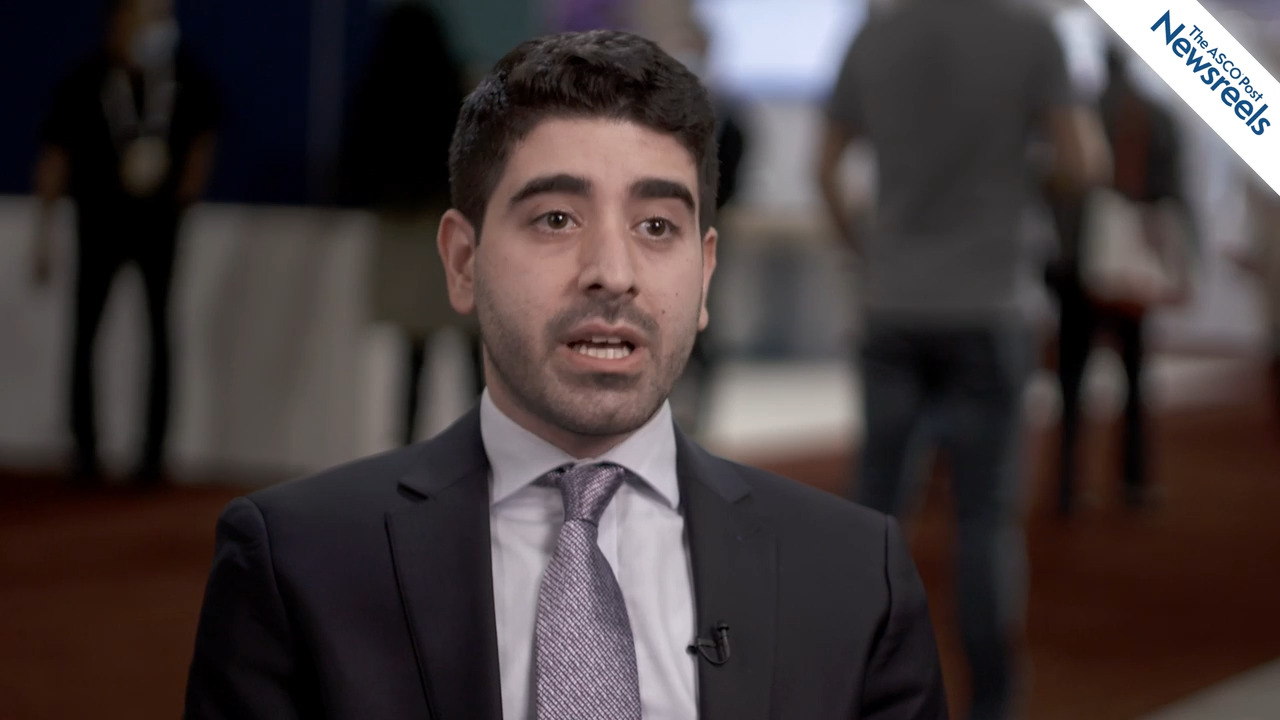Musa Yilmaz, MD, on FLT3-ITD–Mutated AML: Findings on Quizartinib With Decitabine and Venetoclax
2021 ASH Annual Meeting & Exposition
Musa Yilmaz, MD, of The University of Texas MD Anderson Cancer Center, discusses study results suggesting that quizartinib with decitabine and venetoclax is active in patients with FLT3-ITD–mutated acute myeloid leukemia and that RAS/MAPK mutations continue to drive primary and secondary resistance (Abstract 370).
The ASCO Post Staff
Matthew S. Davids, MD, of Dana-Farber Cancer Institute, discusses phase II results from a multicenter study that showed the efficacy of ibrutinib plus fludarabine, cyclophosphamide, and rituximab in younger, fit patients with chronic lymphocytic leukemia who desire the possibility of a functional cure with time-limited therapy (Abstract 640).
The ASCO Post Staff
Roni Shouval, MD, PhD, of Memorial Sloan Kettering Cancer Center, discusses his findings, which show, for the first time, that TP53 alterations are a valuable prognostic and potentially predictive marker in patients with large B-cell lymphoma who receive CD19–CAR T-cell therapy. Gene-expression profiling suggests that TP53 alterations result in an immunosuppressive tumor microenvironment and impaired apoptosis signaling, which could lead to decreased CAR T-cell therapy efficacy (Abstract 710).
The ASCO Post Staff
Tarek H. Mouhieddine, MD, of The Mount Sinai Hospital and The Icahn School of Medicine at Mount Sinai, discusses data that suggest patients with heavily pretreated, predominantly triple-class refractory multiple myeloma who relapse after treatment with bispecific antibodies may still have good outcomes when sequentially treating with other immunologic treatments (Abstract 821).
The ASCO Post Staff
Paolo Ghia, MD, PhD, of the Università Vita-Salute San Raffaele and IRCCS Ospedale San Raffaele, discusses disease-free survival results from the measurable residual disease cohort of the phase II CAPTIVATE trial. This multicenter trial focuses on first-line ibrutinib plus venetoclax in patients with chronic lymphocytic leukemia (Abstract 68).
The ASCO Post Staff
Sangeetha Venugopal, MD, of The University of Texas MD Anderson Cancer Center, discusses a retrospective analysis of 562 patients with treated secondary acute myeloid leukemia and prior exposure to hypomethylating agents (HMAs). The results showed that an HMA plus venetoclax yielded significantly higher overall response rates and improved overall survival compared with intensive chemotherapy or low-intensity chemotherapy, particularly in patients 60 years or older who had a karyotype without adverse risk (Abstract 794).





